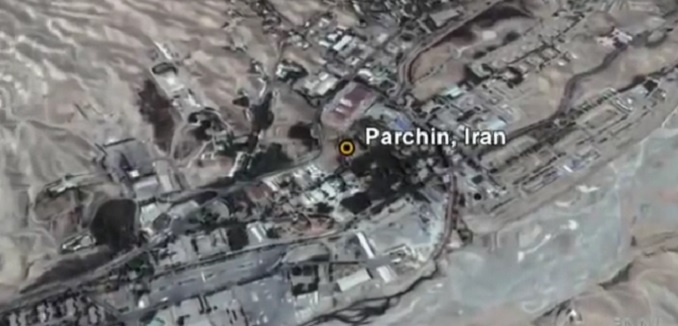Tehran is reportedly continuing to deny international nuclear inspectors access to the country’s Parchin military base, a site that Western diplomats and U.N. inspectors have long emphasized – per a 2011 report by the the International Atomic Energy Agency (IAEA) – shows “strong indicators” of having been used for explosives tests related to “possible nuclear weapon development.”
Iran’s Atomic Energy Organization (AEOI) on Saturday asserted that the inspectors, who are in the country for a two-day visit, were not legally entitled to visit the Parchin base because it is not directly linked to Iran’s nuclear program:
Former Head of the AEOI Fereidoun Abbasi said in March 2013 that Tehran would allow the IAEA to visit its non-nuclear military site in Parchin again only if the UN nuclear watchdog convinces it of the necessity of such a visit by presenting relevant documents.
“As I have said before, Parchin isn’t a nuclear site and no nuclear activity is carried out in there,” and if the IAEA believes that it should visit this site, it “should present its documents about nuclear activity in this site so that we can discuss the issue with our military officials,” Abbasi told reporters in Tehran at the time.
The assertion has the potential to be taken as too clever by half. Demands for access to the military facility are grounded in among other things United Nations Security Council (UNSC) resolution 1929, which calls on Tehran to clarify so-called “possible military dimensions [PMDs] of the Iranian nuclear programme.”
Non-compliance with the resolution has been cited in congressional legislation as a central justification for imposing pressure on the Islamic regime. Western negotiators hammering out the interim Joint Plan of Action (JPA) had deliberately put off addressing PMDs, and U.S. officials had subsequently assured journalists and lawmakers that the issues would be addressed in the context of comprehensive talks.
Iranian negotiators, for their part, have recently taken to suggesting that they prefer to put off such discussions until some time in the future, and to deal with other issues first. Observers have suggested that Tehran may be trying to maneuver the West into a position where Iranian negotiators will ultimately decline to address PMD-related issues, and instead functionally dare P5+1 diplomats to scuttle a final deal over the Iranian military’s entanglement in the country’s atomic program.
[Photo: Sherlock72 / YouTube]




